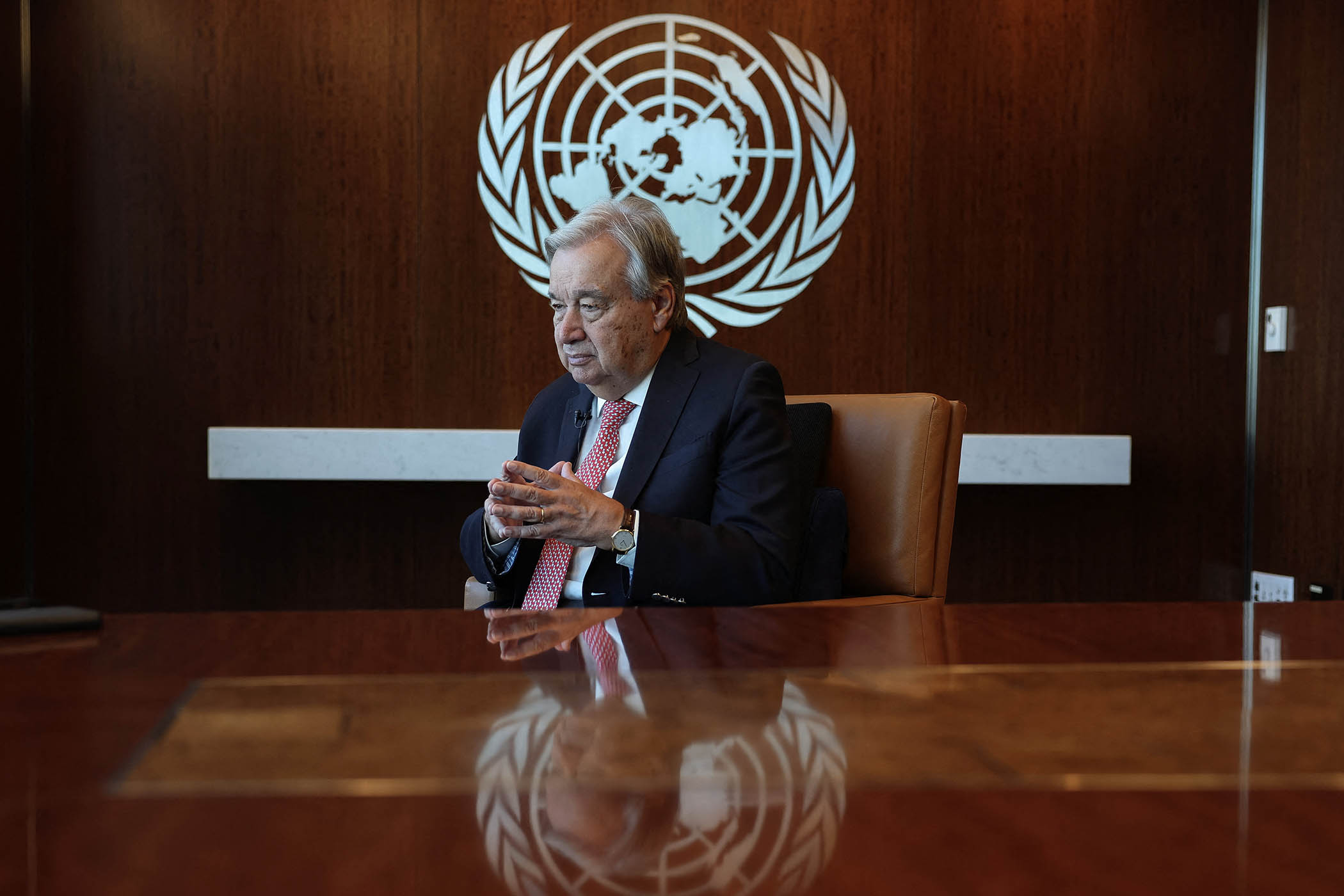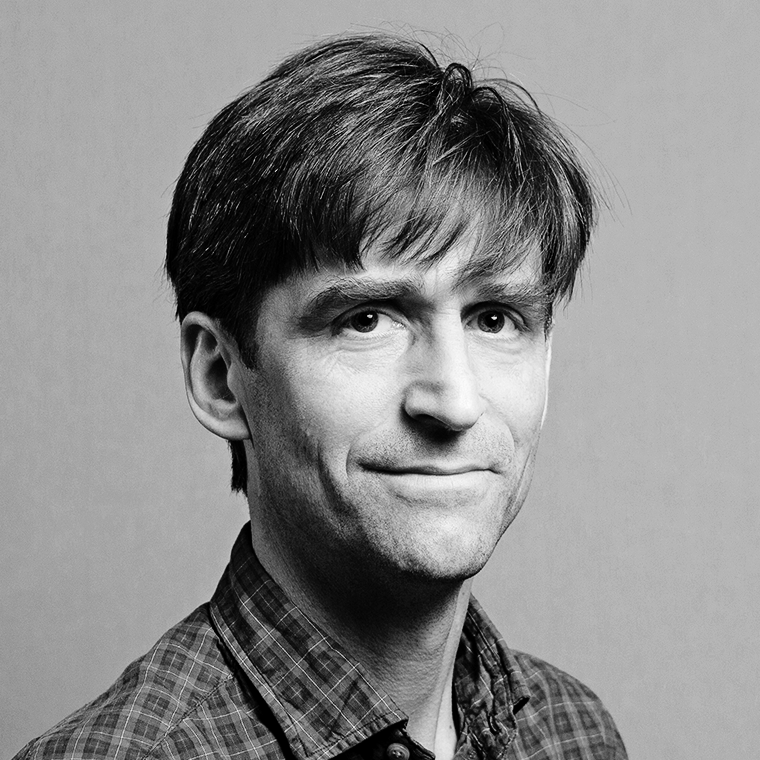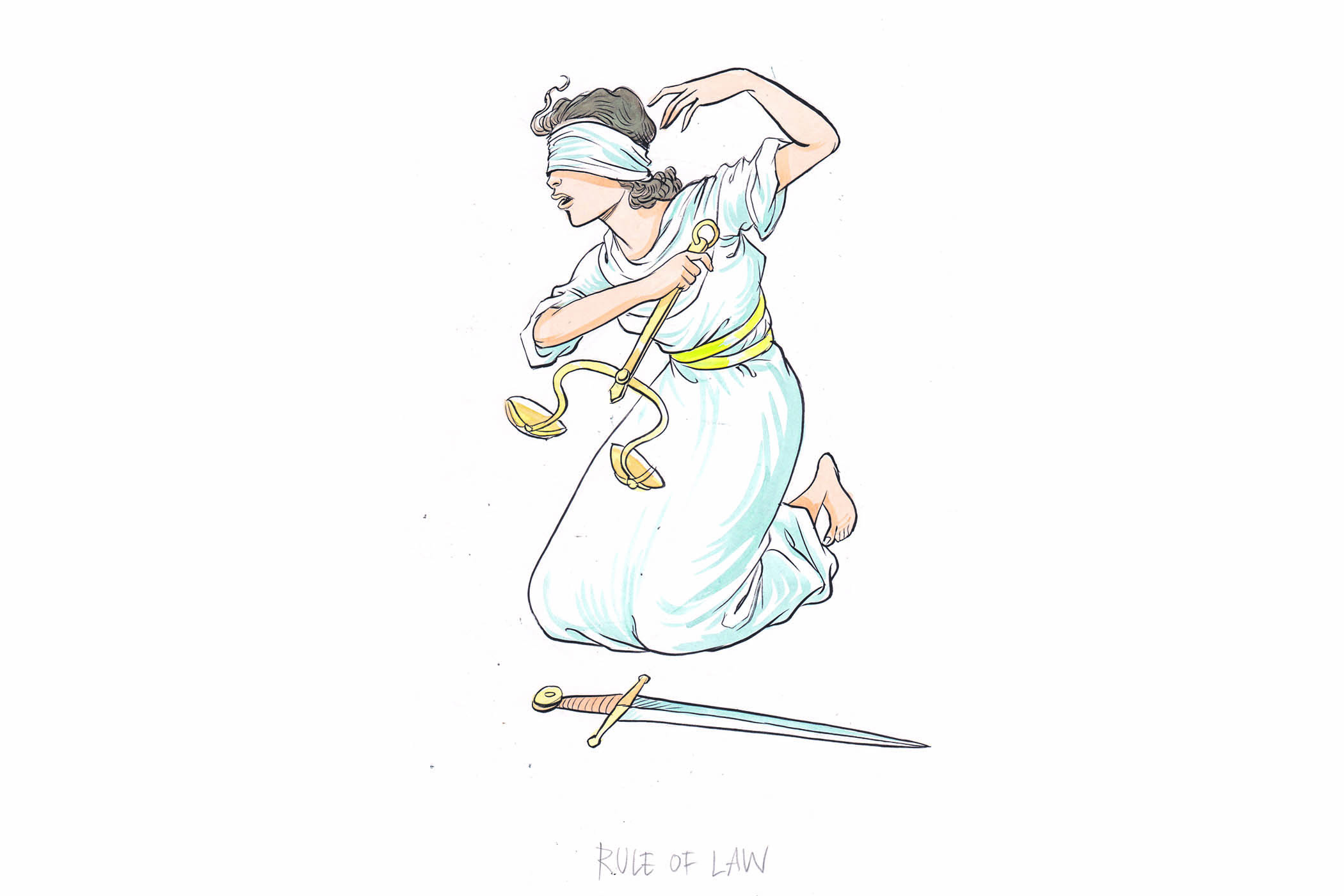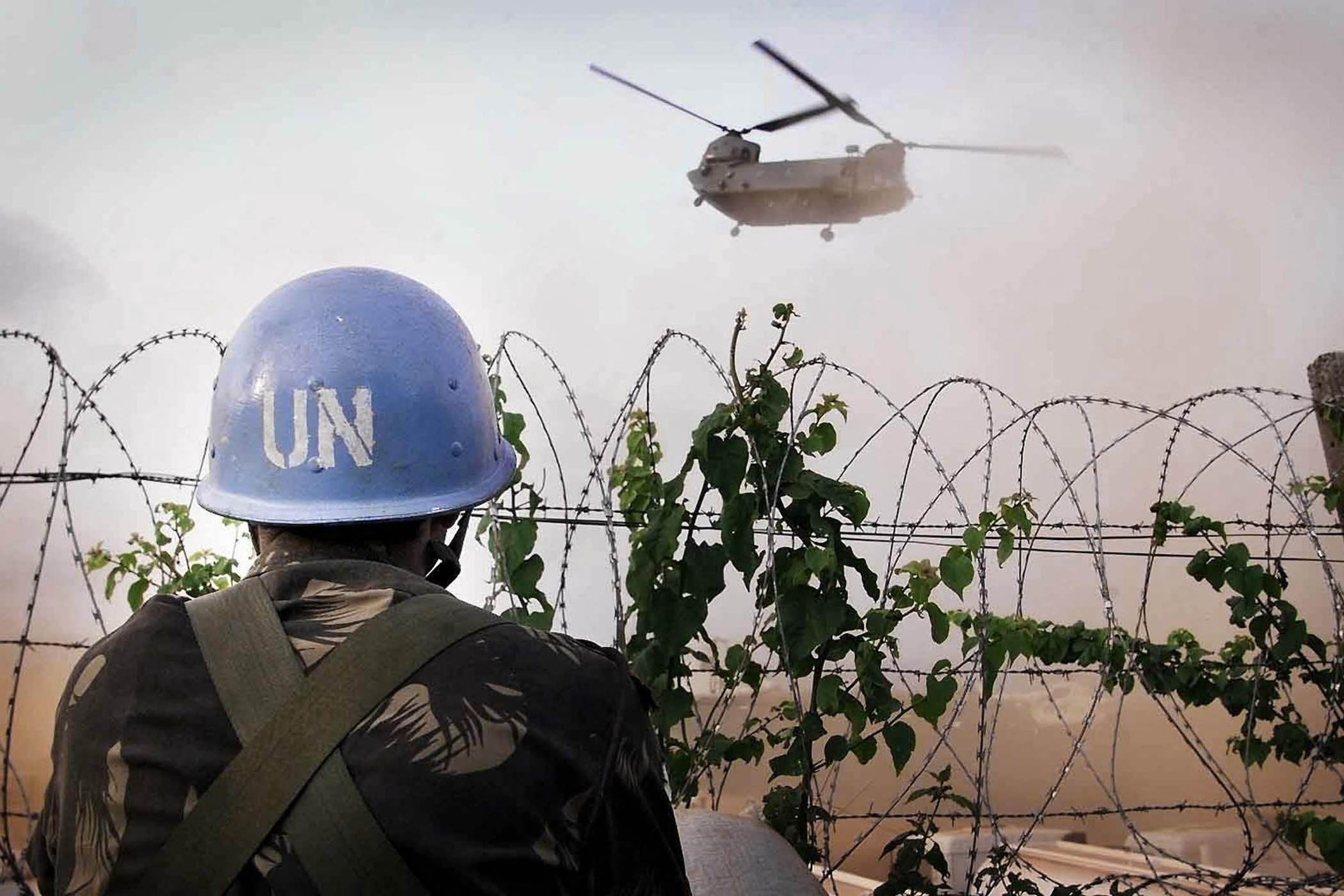The porterhouse steak at Smith & Wollensky’s, a few blocks from UN Plaza, costs $155 for two. “It’s one of our popular items,” the maître d’ says, “especially this week.”
This week is UNGA week, when the world descends on New York for the United Nations general assembly and a thousand quiet bilaterals in the restaurants of midtown Manhattan.
The options for UN aid recipients aren’t so tempting. The amount of food distributed by the World Food Programme nearly halved between 2020 and 2024. Funding for all UN aid programmes is falling as rich nations cut their budgets. In war zones on three continents the UN is failing in its historic role as peacekeeper. In Washington, which approved a third of all UN spending in 2022, support for the UN generally has collapsed.
Eighty years after its founding in San Francisco on a wave of optimism, the UN is unloved, unhappy and shrinking. Its accountants have been told to find $500m of savings in New York alone. Nearly 20% of jobs there are to go. The UN’s host nation under President Trump has mounted a full-scale assault on its institutions, says one former senior official. Its secretary general has been a “damp squib”, says another.
Across the plaza from the 39-storey UN building stands the Trump World Tower. It would surprise no one if Trump’s anti-UN animus was fuelled by a desire to knock the older building down for better views of the East River, but the reality is knottier. The UN is reeling from a combination of donor fatigue, structural defects, brutal geopolitics and a deep conviction in Maga-world that the body set up to end war as a way of settling arguments is now disabled by bureaucracy and shot through with antisemitism.
The bureaucracy is innate: the UN’s charter requires it to report each year on progress in fulfilling each of some 2,000 mandates approved by the general assembly. Last month, the secretariat admitted that most of its reports weren’t read, and secretary general António Guterres said the requirement to produce them was “pushing all of us to breaking point”. The antisemitism charge has currency now chiefly as a Maga talking point. Elise Stefanik, Trump’s first choice for US ambassador to the UN, told an audience in March she was preparing for a “fight for western civilisation” in which “the antisemites at the United Nations better buckle up, because I’m coming”. In the end she didn’t, but only because Trump needed her more in the House of Representatives.
Meanwhile in Gaza, where the UN was a lifeline for 2 million people with 13,000 employees, it’s now effectively an adjunct to the Gaza Humanitarian Foundation, elbowed aside by force. In Sudan the UN is present but powerless to halt a civil war or prevent the world’s worst humanitarian disaster. In Ukraine its hands are tied because the invader is a permanent member of its security council with a veto over any resolution the council tries to pass.
In Paris the UN is remembered – by some at least – as sponsor of the 2015 Cop conference at which 195 countries agreed to strive to control global warming. Ten years on, that sort of cooperation in defence of the global commons is a memory. The Cop conferences continue, but the last two have been hosted by petro-states. The next one, in Brazil, will highlight the contrast it provides with the US, not common ground. Solidarity is being drowned out by great power chest-beating.
“It used to be Russia that acted as the spoiler in the security council. Now the power that saw itself as the guarantor of the system is opting out,” says Volker Perthes, former head of the UN’s political mission to Sudan.
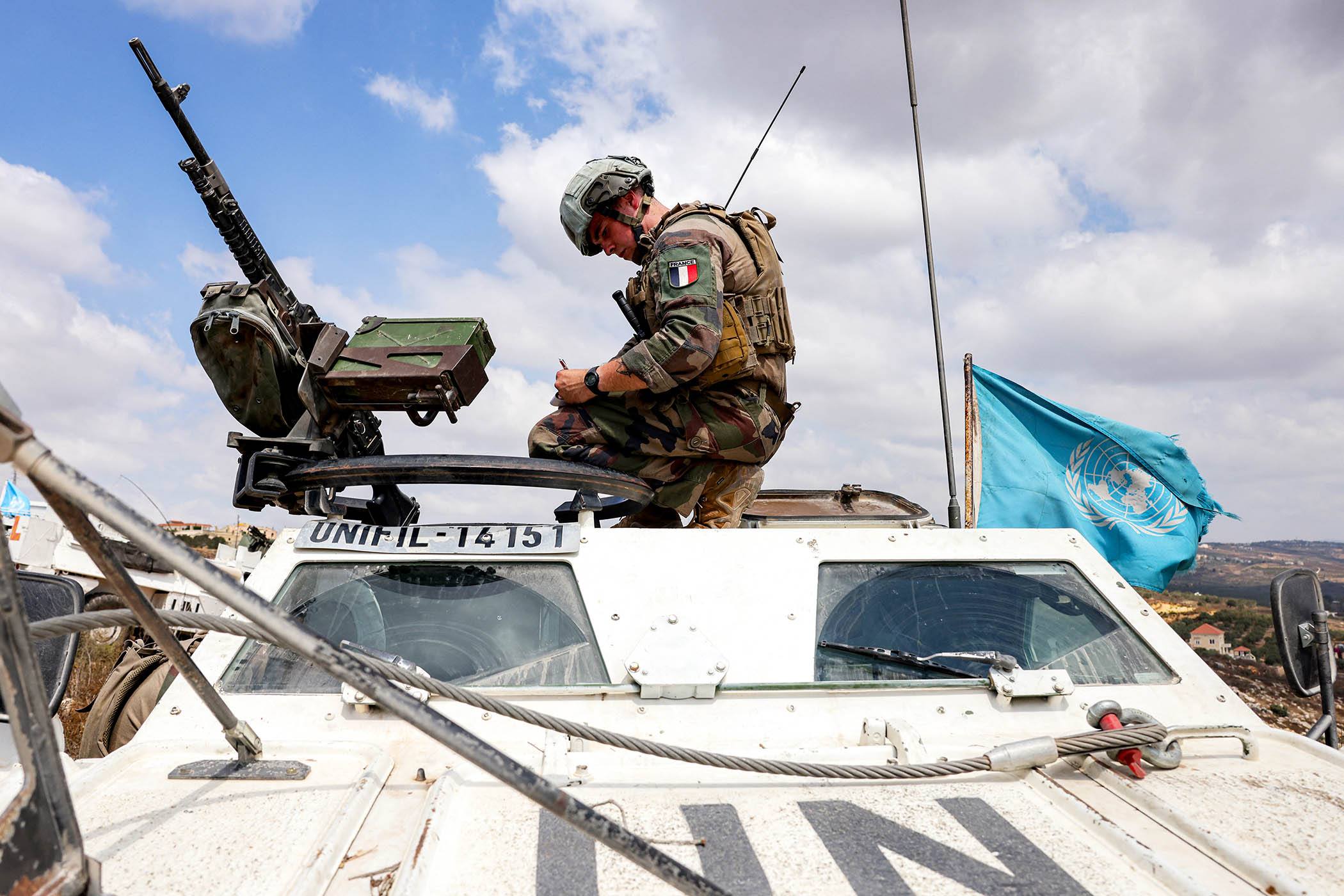
A French UN peacekeeper in Kfar Kila on Israel’s border with Lebanon in August
Since January the US has withdrawn from the World Health Organisation, Unesco, UNRWA in Gaza, the UN Human Rights Council and the UN Populations Fund. It has also stopped participating in UN climate work. The Carnegie Endowment expects the US to scrap discretionary UN funding and payments for UN peacekeeping altogether next year, and to cut funding for other programmes by 80%, from $1.2bn to $300m.
Overall, 6,900 jobs are to be cut and “there is going to be human suffering”, Richard Gowan of the International Crisis Group tells the Council on Foreign Relations. “There will be fewer people fed. There will be fewer people being vaccinated or sheltered by the United Nations.”
“A number of member states no longer see it as being an indispensable tool, or in some cases even a valuable tool, in achieving their national interests or their foreign policy goals,” says Christopher Ankersen, a former UN official.
Jan Eliasson, a former UN deputy secretary general and Swedish foreign minister, sees a “dark future” with narrowing scope for diplomacy and growing distrust between major powers. And yet, despite everything, other countries keep the faith. In dozens of low and middle-income countries in Africa and Asia the UN is still seen “as the legitimate source of international cooperation and problem-solving”, says David Miliband, head of the International Rescue Committee. Another aid expert calls the UN simply “the last best hope”.
“It’s very popular to bash the UN and say it’s useless, but I think it's the best thing we have,” says Oliver Stuenkel, a Brazilian-German political scientist, despite having worked at UN headquarters in his 20s and found it “mind-bogglingly slow”. “It’s always worth keeping in mind that the budget of the UN headquarters is less than that of the New York police.”
Stuenkel is the author of an influential paper published last year arguing that the countries of the Global South tend not to reject the UN’s rules, just how they are applied; and that a mistrust of western hypocrisy long predates Trump.
These countries aren’t opposed to a liberal world order, Stuenkel writes. “Rather, they are opposed to the US’s capacity to act without a permission slip – that is, to get away with things others do not get away with, such as invading other countries and not suffering economic sanctions.”
Exhibit one in this analysis is the 2003 invasion of Iraq, which Lina Khatib of Chatham House says “ushered in a new era of disregard for international law”. Fast-forward to 2025 and, to many, the damage to the UN’s credibility looks terminal. In Gaza it is failing to deliver aid or peace, and more than 300 of its own staff have been killed. Throughout the conflict, Khatib says, the UN’s hands have been tied by the US.
If another power wanted to take on a leadership role at the UN, this might have been the moment. Yet that hasn’t happened. “China is not stepping in,” Volker Perthes says – either within the UN system or outside it. Its National Development Bank is still small. Its efforts to turn the yuan into a reserve currency like the dollar have so far failed, and its self-assigned role in international development is far more transactional than the UN’s, consisting mainly of investments in bridges, ports and transport corridors.
Xi Jinping may want the world’s goods to be made in China but, as Princeton’s John Ikenberry has written, the liberal international order “was designed and built in the west”. And there is a case to be made that it is proving surprisingly resilient, despite the best efforts of an outlier America to tear it down.
“The current international order is actually the UN-centred order,” Perthes says. “Structures and institutions change, but world orders only change after major wars.”
World war three is not in fact imminent, he argues. The UN may have helped to keep it at bay. “You have the opportunity for behind-the-scenes conversations between all 193 member states,” says Maya Ungar of the International Crisis Group.
This week Brazil and India will be lobbying for reform of the UN security council on which both regard securing a permanent seat as a major foreign policy objective. China will be promoting the idea of a UN-backed AI regulator. Champions of a two-state solution to the Israel-Palestine crisis will be welcoming recognition of Palestinian statehood by Britain and France, and somewhere, Ungar says, it’s possible that even delegates from Russia and Ukraine will be “sitting calmly in a room and discussing”.
There is an echo of the Cuban missile crisis in that image. Adlai Stevenson and Valerian Zorin, the US and Soviet ambassadors to the UN of the time, berated each other in the security council chamber rather than sitting calmly exchanging views, but they used words rather than warheads.
Sixty years on, their successors, together or apart, will at some point have to eat. If they can’t afford midtown restaurant prices, the UN does have several cafeterias – although Stuenkel says the queues are insane “and the food is terrible”.
Photograph by Angela Weiss/AFP via Getty Images
Newsletters
Choose the newsletters you want to receive
View more
For information about how The Observer protects your data, read our Privacy Policy
